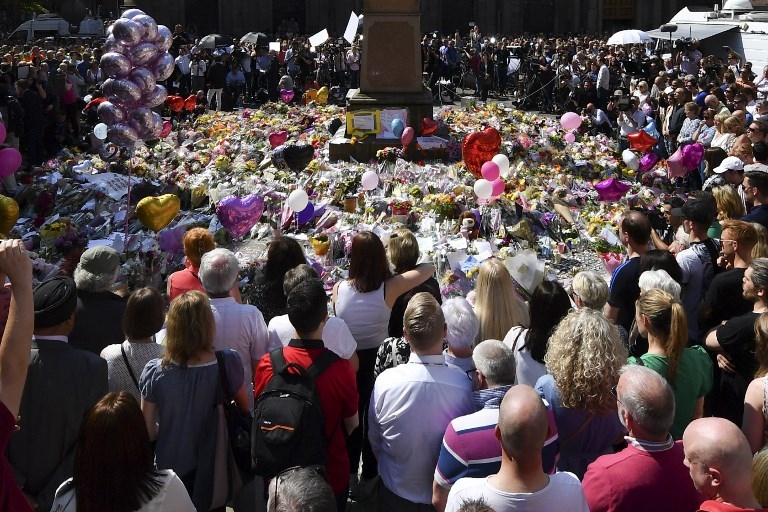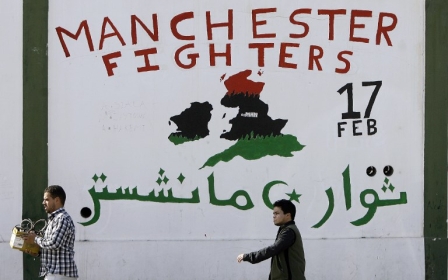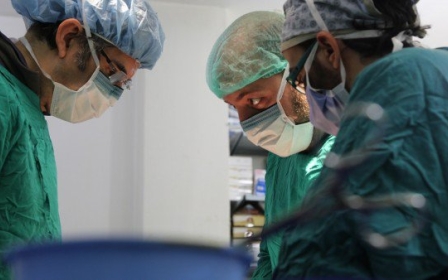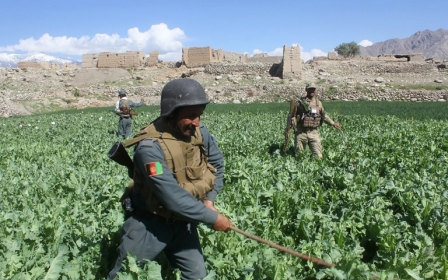Five tangible steps we could take to stop terrorist attacks

When terrorist attacks occur in Western countries as horrendous as the one this week in Manchester, politicians and media outlets inevitably call for stemming migration flows to the West, increasing police powers targeting Arab and Muslim communities in the West, and escalating war in the greater Middle East, a region encompassing West Asia, Central Asia, and North Africa.
It is inadequate to simply argue that xenophobic migration policies, discriminatory law enforcement, and war are not the answer
People who oppose racism and war correctly argue that the law enforcement and migration laws typically called for after these attacks are bigoted, that religion isn’t the cause of suicide bombings, and that war in the greater Middle East unjustly kills innocent people and is a leading cause of, rather than a solution to, terrorism.
Yet it is inadequate to simply argue that xenophobic migration policies, discriminatory law enforcement, and war are not the answer. Debating what counts as terrorism can be useful - and here I will use the term to mean politically motivated violence against civilians, including that which is carried out by Western militaries and their allies though that is not my focus - but it is insufficient on its own.
If people in Western countries are going to be dissuaded from supporting war-mongering, Islamophobic policies, it is necessary to offer concrete proposals for how to stop terrorism - and many of these could help address a wide range of other social problems at the same time.
The optimal solution, in my view, would be a global socialist revolution in which exploitation and profit-driven resource competitions are replaced by democratic control over economics and international solidarity. Given that this is far from imminent, here are measures that might be easier to achieve in the short-term:
1. Stop supporting militant groups
At the international scale, one can begin with the most obvious point: the US and its Saudi partner should stop trying to counter international rivals by supporting and enabling organisations that commit terrorist acts, a practice both governments have undertaken in Afghanistan, Libya, and Syria.
2. End the wars - and don't start new ones
It is equally essential to facilitate a negotiated end to ongoing wars, especially the ones in Afghanistan, Iraq, Libya, Syria and Yemen. This means that US-led efforts to oust or weaken the governments of Syria and Iran have to stop. It is imperative that no full-scale war against Iran be started - and that the confrontational posture the West and its Israeli and Gulf state allies have adopted toward the country end.
The incalculable death, suffering, and chaos that wars inflict are central among the conditions that foster terrorism and any plan for stopping the practice should put ending US-led militarism at the centre.
This point will be painfully clear if, as the still emerging and sketchy reports suggest, it turns out that the Manchester bomber and his family were involved with Libyan groups that the US classifies as terrorist outfits. Such organisations gained greater traction in the country when Qaddafi was overthrown in a US-led war aimed at controlling resources in Libya and across Africa.
3. Dismantle the bases
Dismantling Western military bases in the greater Middle East, most of which are American, and withdrawing the forces therein is a crucial step toward these ends. These bases facilitate US-led imperialist wars and their presence functions as a threat against political actors who may wish to chart a course with a view toward the welfare of the local population rather than to US dictates.
Consequently, many in the region quite reasonably understand the bases to be elements of imperialist domination and they contribute to fuelling the hostility to Western societies often at play in bombing attacks like the one in Manchester.
3. Stop supporting tyrants
Ceasing to prop up tyrannies, such as those which rule Egypt, Jordan, the Gulf countries and Israel, by ending weapons sales and military aid to all such states should be a key part of any effort to reduce terrorist attacks. These US proxies have crushed the populations they control and disfigured the region through war, through extreme political repression particularly of minority groups and progressive movements, and through elites’ economic domination.
4. Support independent economic development
If the West were to allow for the independent economic development of the region's people without forcing dictatorships upon them - and provide reparations for the rebuilding of countries in the greater Middle East destroyed by wars or uneven economic development or both - it would be a step toward ending terrorist attacks linked to this part of the world.
The same would be true of ending the West’s control of the human, natural and financial resources in the greater Middle East and efforts to gain that control. While many people involved in carrying out terrorist massacres come from middle-class backgrounds in the West, the political background for these killings consistently connects to groups whose actions and ideologies flourish in conditions of exploitation and immiseration.
5. Get our own house in order
Similarly, within the West, it’s necessary to launch major wealth redistribution and job creation programmess as well as a deepening of the social safety net. These steps would put a dent in the alienation and insecurity that, in some sense, is always at play in a terrorist attack as would ramping up mental health services. To the same end, a concerted effort at all levels of society to combat Islamophobia, notably in the security apparatuses and the media, is urgently needed.
Certainly, enormous political shifts would have to take place for any of these proposals to be adopted. But a key first step towards achieving any of them is being able to not only say that violent, repressive responses to terrorist attacks are undesirable, but also to articulate specific ways for ending atrocities against civilians whether they are in Paris or Palestine, Brussels or Beirut, Manchester or Mosul.
Western states are not solely responsible for every tragedy that occurs in the greater Middle East or for the tragedies in the West that are connected to them. But the ruling classes of the US-led empire, including their regional partners, are profoundly culpable in many of them and a wide range of options like those suggested here exist for generating more secure and more egalitarian lives for people at home and abroad.
- Dr Greg Shupak is an author and activist who teaches Media Studies at the University of Guelph in Canada.
The views expressed in this article belong to the author and do not necessarily reflect the editorial policy of Middle East Eye.
Photo: People stop to observe a minute's silence in St Ann's Square gathered around the tributes, in central Manchester, northwest England, on 25 May 2017 as a mark of respect to the victims of the 22 May terror attack at the Manchester Arena (AFP)
This article is available in French on Middle East Eye French edition.
New MEE newsletter: Jerusalem Dispatch
Sign up to get the latest insights and analysis on Israel-Palestine, alongside Turkey Unpacked and other MEE newsletters
Middle East Eye delivers independent and unrivalled coverage and analysis of the Middle East, North Africa and beyond. To learn more about republishing this content and the associated fees, please fill out this form. More about MEE can be found here.





